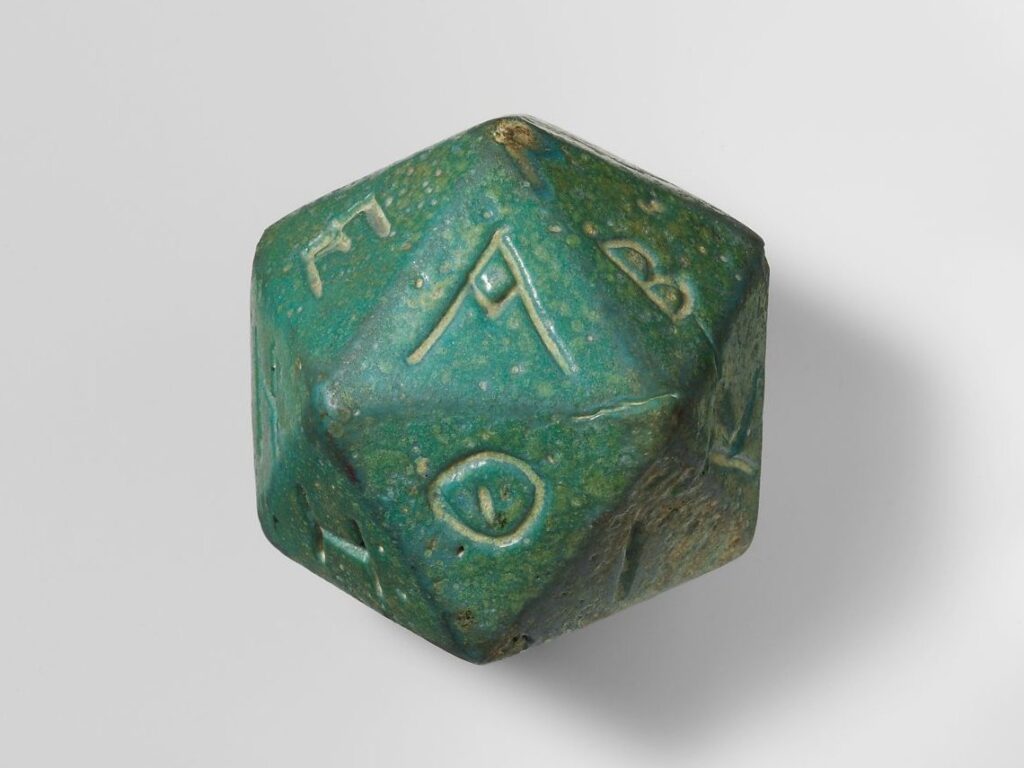Imagine wishing for tragedy so you could bag some cash. Yes, people are staking massive amounts on tragic occurrences today, including deaths. From the ill-fated Titan submarine and the California wildfires to the Gaza war, people profited from the loss of lives through death betting or death pools. But this strange activity didn’t begin today.
Records exist from the Middle Ages of people predicting the deaths of others and backing them up with cash. Even the papacy hasn’t been spared from this dark endeavor. The demise of the leaders of the Catholic Church has been an object of speculation for many centuries.
Here, we’d examine the history and evolution of death gambling and how it has become popular to bet on unfortunate events. We will trace the trend of gambling on death from the 4th century down to present times as we discover how lucrative the death gambling market has grown to become.
When Did Gambling Begin?
Gambling is as old as human existence itself. That’s because the urge to gamble is deeply rooted in the human desire for risk and reward. We all love to take chances for potential benefit. We love rewards, but equally, the adventure that comes with it. It is no surprise that evidence of gambling dates back to very ancient periods.

The Six-Sided Dice (3000 BCE – 500 CE)
If you’ve ever wondered when the popular six-sided dice came into existence, evidence points to many centuries ago. As far back as 3,000 BCE, bones were carved into six-sided dice in Mesopotamia. The Egyptians also played dice games.
Other gambling tools, such as keno, held sway in ancient China. This lottery-like gambling game, in which players select numbers and stake on the chances of predicting selected numbers, has been around since 2,300 BCE.
The Romans and Greeks played board games such as tabula. They also bet on events such as gladiator battles and chariot races.

Card Games and Lottery (500-1700)
Card games and lotteries were commonplace in medieval Europe. Cards began to infiltrate the continent, likely from China. The Church frowned at their sinfulness and rallied against them. Some governments embraced them, and others tried to clamp down on them. One example was the 1541 Unlawful Games Act in England.
Casinos (1700-1900)
Gambling houses emerged in the 1600s. They popped up across different parts of Europe, and their popularity spread like wildfire. Notable examples include the Ridotto in Venice, Italy.
By the 1800s, full-fledged casinos surfaced in places like Monte Carlo. The Poker and Faro games were dominant in these facilities. Horse racing also dominated a large section of the betting market. They attracted so much patronage and caused such a stir that state governments began to place bans on gambling.
Legalization and Regulation (1900-2000)
Although the clampdowns continued, especially in the United States, one state set itself apart. Nevada refused to outlaw gambling. Instead, the state made it legal and sanctioned casino operations.
This decision was backed by legislation in the 1930s. This is the root of Las Vegas’ legendary reputation as the “gambling capital of the world.”
After the Second World War, states began to explore ways of controlling gambling instead of banning it. States in the U.S, such as New Hampshire, legalized gambling but with regulation. The same wind also blew in the United Kingdom.
Gambling Advancements and Digitalization (2000 to date)
At the turn of the 1990s, gambling entered a new dimension with the introduction of the computer. The need to visit any betting house began to die out. People could now place bets on their computers from their homes.

The 2000s saw the explosion of online betting. Poker games, casinos, and sports betting were hosted on online platforms. While the UK welcomed regulated online sports betting, the United States government rejected it. It took the intervention of the Supreme Court, which allowed sports betting but left it to the states to decide.
By the 2020s, virtual reality casinos had become a thing. The gambling market had yet again expanded; in 2023, it was worth about $500 billion.
Why Do People Gamble on Death?
Death gambling involves staking money while predicting when or how someone will die. It could happen informally among friends as well as in organized betting platforms. While some view it as a disturbing trend, others find it harmless and exciting.
Gambling on death has been popular since the Middle Ages. Psychologists have traced this morbid indulgence to several reasons. First, the allure of taking risks to gain rewards. People also want to brag about staking small amounts and gaining huge windfalls.
Also, there is the motivation of dark curiosity and psychology. Humans understand the unpredictable nature of life well, which is a source of curiosity and fascination. Betting people will die offers a darker excitement that no other event can match.
Death pooling can also take on a more worrisome dimension when people begin to bet on terminally ill individuals, and especially celebrities. The death pool markets usually become busier after a catastrophic event unfolds. Gamblers then exploit the tragedy, staking on predicted outcomes for rewards.
The height of it all takes place in dark web assassination markets. These are online communities hosted on the dark web involving individuals with hidden identities. These individuals declare bets or even bounties on the day certain celebrities, including entertainment figures and politicians, will die.

Gamblers on the platforms who accurately predict these public figures’ day or manner of death end up raking in massive amounts in rewards if their predictions come true. Money transfers are also done discreetly, such as through cryptocurrency.
Federal authorities across continents have focused their investigation on these groups and even launched raids targeting suspected members. Some of these groups have been forced to shut down, notably among which is the 2013 Assassination Market, where figures like Barack Obama and Beatrice Ask were objects of wagers.
Famous Cases of Death Betting
There have been several notable cases of death betting in the past. From the death betting culture of ancient Rome, when people staked money on which gladiators would lose their lives at the Coliseum, to the 18th-century bets on public executions in England. But there are a few that have stood out.
Papal Deaths
Let’s begin in Medieval and Renaissance Europe, from 500 to 1700, when people bet on the outcome of papal conclaves and took it one step further: they bet on the deaths of popes. This happened across Europe, especially in Rome.
Also, in the 15th and 16th centuries, bets placed on the death of popes caused quite a worry at the Vatican. Pope Gregory XIV had to announce sanctions on future perpetrators in 1591. He decreed that anyone caught in the practice was to be excommunicated.

Most of the culprits were high-ranking society members and clergy. The behavior persisted well into the 20th century. In the early 2000s, as Pope John Paul II’s health suffered, people began to stake money on when he would die. Most of these bets originated from the United Kingdom and Ireland.
The Catholic Church slammed the practice but couldn’t stop it. It repeated itself after news of Pope Francis’ health decline made the rounds in 2023. Organized betting platforms made his potential death stakeable. His case also showed up on Reddit’s death pool threads.
The Titan Submersible
Another example of betting on death happened after the Titan sub was declared missing. The Titan submersible, a small submarine vessel operated by OceanGate, went to the depths of the North Atlantic Ocean. Its mission was to take its five occupants to explore the centuries-old wreck of the Titanic.
The passengers included Stockton Rush, 61, the CEO of OceanGate, who served as the pilot; Shahzada Dawood, 48, a Pakistani-British businessman; and his son, Suleman Dawood, 19. All went well in the first 90 minutes, with the crew of the watertight vessel communicating positively at about 3,346 meters below the sea.
However, the water pressure overwhelmed the vessel shortly after, resulting in a breach. They lost contact with the world and all drowned to death. However, while they were struggling to live, people were betting on their death.

Polymarket, the crypto-based betting market, had people stake hundreds of thousands of dollars on whether the passengers would be found before June 23, 2023. Although the titles of the bets never mentioned the deaths of the occupants, the fact that they were running out of oxygen meant that the implication of the bets was on their demise.
California Wildfires
Wildfires broke out across California in January 2025. Houses were destroyed, homes were evacuated, other properties were burnt, and most tragically, people died. Fourteen wildfires affected the San Diego County and the Los Angeles Metropolitan area beginning on the 7th day of the month.
The fires spread quickly due to low humidity, drought, and dry vegetation. After they were quelled, over 30 people had died, 200,000 residents had to flee their homes, and property worth over $57 billion was lost. But while this was going on, some people were profiting from the disaster.
The betting marketplace Polymarket received bets for at least 19 wildfire predictions. These predictions involved numbers arising from the tragic event. Users bet on where the fires will spread, how many acres of land will be affected, and when the fires will be quenched.

However, the bets never targeted the deaths of victims. But many people won’t see it that way. Thousands of people condemned the 6-figure bets on social media. They wondered why anyone would want to get rich off a tragedy that cost dozens of lives.
However, as numerous cases have shown, people have a morbid interest in betting on disaster and death. While this is largely viewed as immoral, it is legal as long as it doesn’t involve directly betting on people’s lives. This is human nature.

